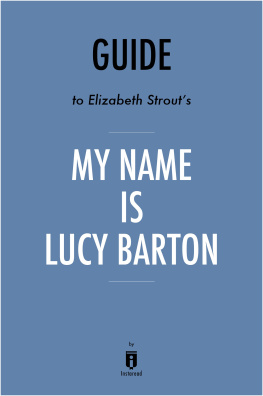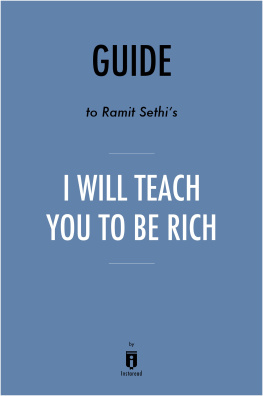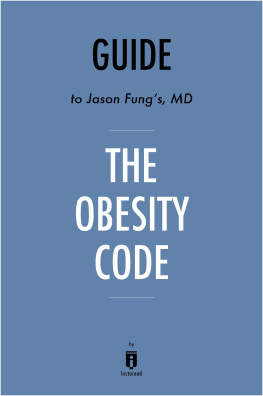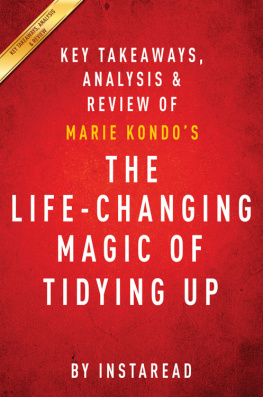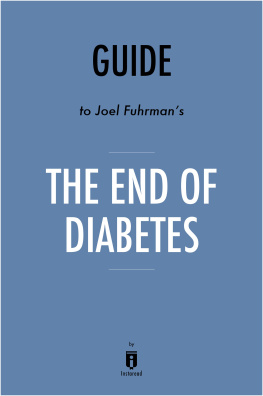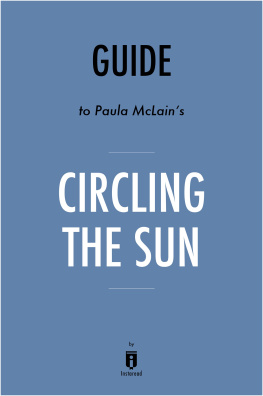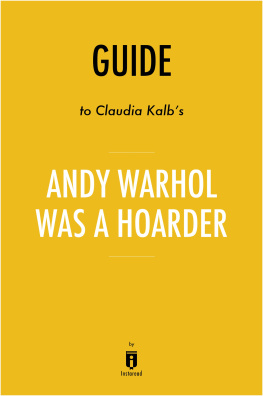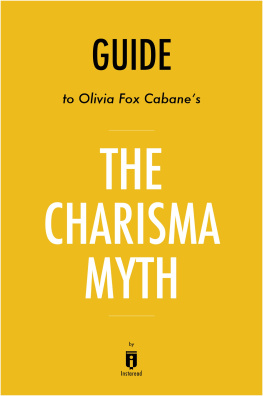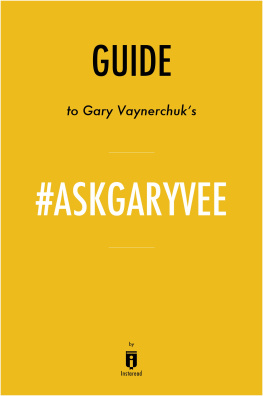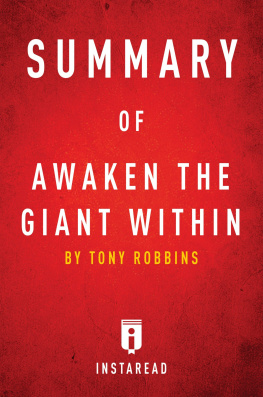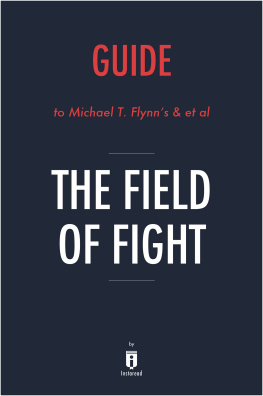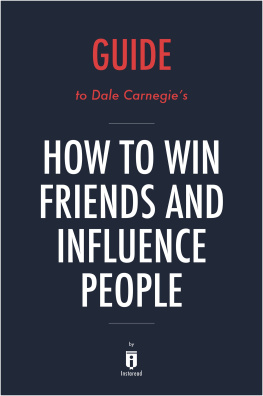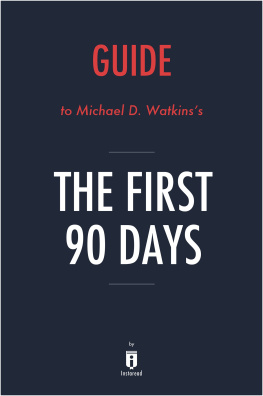. Instaread - Summary of Dark Money: by Jane Mayer
Here you can read online . Instaread - Summary of Dark Money: by Jane Mayer full text of the book (entire story) in english for free. Download pdf and epub, get meaning, cover and reviews about this ebook. year: 2016, publisher: iDreamBooks Inc, genre: Politics. Description of the work, (preface) as well as reviews are available. Best literature library LitArk.com created for fans of good reading and offers a wide selection of genres:
Romance novel
Science fiction
Adventure
Detective
Science
History
Home and family
Prose
Art
Politics
Computer
Non-fiction
Religion
Business
Children
Humor
Choose a favorite category and find really read worthwhile books. Enjoy immersion in the world of imagination, feel the emotions of the characters or learn something new for yourself, make an fascinating discovery.
Summary of Dark Money: by Jane Mayer: summary, description and annotation
We offer to read an annotation, description, summary or preface (depends on what the author of the book "Summary of Dark Money: by Jane Mayer" wrote himself). If you haven't found the necessary information about the book — write in the comments, we will try to find it.
Inside this Instaread Summary of Dark Money
Overview of the book
Important People
Key Takeaways
Analysis of Key Takeaways
Summary of Dark Money: by Jane Mayer — read online for free the complete book (whole text) full work
Below is the text of the book, divided by pages. System saving the place of the last page read, allows you to conveniently read the book "Summary of Dark Money: by Jane Mayer" online for free, without having to search again every time where you left off. Put a bookmark, and you can go to the page where you finished reading at any time.
Font size:
Interval:
Bookmark:
Guide
to
Jane Mayers
Dark Money
The Hidden History of the Billionaires Behind the Rise of the Radical Right
by Instaread
Please Note
This is a companion to the original book.
Copyright 2016 by Instaread. All rights reserved worldwide. No part of this publication may be reproduced or transmitted in any form without the prior written consent of the publisher.
Limit of Liability/Disclaimer of Warranty: The publisher and author make no representations or warranties with respect to the accuracy or completeness of these contents and disclaim all warranties such as warranties of fitness for a particular purpose. The author or publisher is not liable for any damages whatsoever. The fact that an individual or organization is referred to in this document as a citation or source of information does not imply that the author or publisher endorses the information that the individual or organization provided. This concise companion is unofficial and is not authorized, approved, licensed, or endorsed by the original books author or publisher.
Table of Contents
Dark Money by Jane Mayer profiles the wealthy donors who have funded and established organizations to promote libertarian ideals, particularly the brothers Charles and David Koch. They and their two other brothers were raised by parents who promoted free-market capitalism and were suspicious of anything related or sympathetic to Communism. The four Koch brothers inherited portions of their fathers oil business, and later Charles and David conspired to buy out their other brothers portions of the company.
Charles Koch began funding libertarian political events in the 1970s. In 1979, David Koch ran as the vice presidential nominee on the Libertarian Party ticket. They were joined in efforts to establish and fund organizations, private foundations, and think tanks to support libertarian causes by other wealthy business people. They also collaborated to create and support capitalism-friendly curricula at US universities.
The Koch brothers and their colleagues disparaged government health and safety regulations while fighting against regulators who alleged that their businesses endangered employees lives through exposure to mercury, benzene, and other contaminants, resulting in million-dollar settlements.
The Koch foundations and their network of donation recipients increased in influence, and the groups they funded began contributing more money and advertising directly to political campaigns in 1986. Some of these connections link the Kochs network to the organizations that promoted the Tea Party movement in the late 2000s. They particularly pushed activists to adopt free-market positions on environmental and healthcare issues, using political action committees, organizations that were supposed to appear grassroots, and groups specifically founded to conceal donor identities. Actors in the Koch network engaged in harassment campaigns and published misleading information to influence climate change research and public opinion on President Barack Obamas healthcare initiatives.
Supreme Court rulings in 2010 removed corporate campaign finance limits under certain conditions. The next midterm elections saw unprecedented spending and unexpected victories for extreme conservatives, who replaced moderates in state capitals and the US Congress, in part because of new district maps promoted by Republican groups. The effect of the donations became evident in the positions, proposals, and tactics of Republican officials and candidates for office, including climate change skepticism and decisions not to negotiate for bipartisan causes. Despite these efforts, the donors ultimately could not prevent Obamas 2008 election, his 2012 reelection, and the passage of the Affordable Care Act.
Given those setbacks, leading thinkers in the movement advised donors and organizations to promote their views as being better for the nations well-being and a way of caring for the vulnerable. Recent activities have been portrayed as more bipartisan and Koch network groups have split their resources away from the Republican Party.
Jane Mayer is an investigative journalist and a staff writer for The New Yorker. She has written extensively on the contributions of the wealthy to US politics.
Charles Koch is an owner, chairman, and chief executive officer of Koch Industries. He has contributed extensively to far-right and libertarian advocacy groups.
David Koch is an owner, subsidiary president, and executive vice president of Koch Industries. He has contributed extensively to far-right and libertarian advocacy groups, and he ran for vice president on the Libertarian Party ticket in 1979.
Richard Scaife was a billionaire who used contributions through private foundations to support far-right causes.
Richard Fink is an executive vice president of Koch Industries who serves on the board of a variety of Koch-funded centers, institutes, and foundations.
Barack Obama is the 44th president of the US, a Democrat, and the first black president.
John Olin was the president of Olin Industries who contributed to a variety of academic institutions to influence their teaching of free-market principles.
Richard DeVos co-founded Amway and later bought a basketball team. He is a contributor to Republican and far-right advocacy groups.
James Art Pope is the CEO and chairman of a group of retail stores, and the president and chairman of a private foundation through which he makes contributions to far-right and Republican groups.
Hillary Clinton is a former US senator, first lady, and secretary of state, and is a candidate for the Democratic presidential nomination in 2016.
- Many billionaire contributors to far-right and libertarian groups inherited their wealth and businesses. They also come from families that taught them a dislike of regulation, taxes, and entitlement programs.
- Contributors to far-right and libertarian groups use subterfuge and misdirection to hide the political intent of money they spend as philanthropy. They describe their purpose as favoring the public good, well-being, and freedom, even though the money often ends up serving their private interests.
- Far-right contributors conceal their identities when spending money on political causes for a variety of reasons, including to avoid the appearance of corruption and to prevent ramifications on their business interests.
- Business owners involved in far-right groups often agitate for fewer government health, safety, and investment regulations, even though health and safety violations by their businesses have had long-lasting impacts on employees and communities.
- The money spent by far-right advocates may not be given directly to politicians, but it has a measurable impact on their policies and positions. Those politicians decisions also indirectly benefit the contributors.
- Far-right advocates sought a variety of ways to spread their ideals, including indoctrinating young students at institutes, centers, and programs within larger universities.
- Contributors to far-right causes sought to spread their ideals to the wider public by financially supporting activism, although the activism was supposed to look like it sprang naturally from working class unrest. Appearing authentic was vital to their success.
- As the influence of individuals like the Kochs increased, the tone of political debate became more cruel, and political operatives used more misleading or false accusations.
- The Supreme Court rulings on cases involving Citizens United and SpeechNow changed the dynamic of money in political campaigns by removing limits on campaign spending by corporations.
Font size:
Interval:
Bookmark:
Similar books «Summary of Dark Money: by Jane Mayer»
Look at similar books to Summary of Dark Money: by Jane Mayer. We have selected literature similar in name and meaning in the hope of providing readers with more options to find new, interesting, not yet read works.
Discussion, reviews of the book Summary of Dark Money: by Jane Mayer and just readers' own opinions. Leave your comments, write what you think about the work, its meaning or the main characters. Specify what exactly you liked and what you didn't like, and why you think so.


